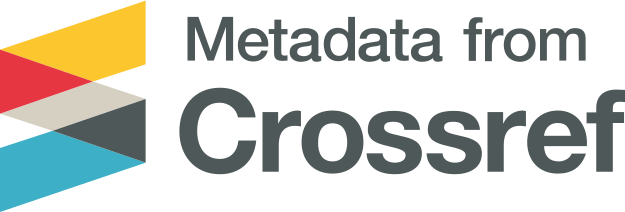Ukuran Perusahaan dan Tax Avoidance: Peran Moderasi Kepemilikan Institusional
Abstract views: 672 | PDF downloads: 659
Abstract
This research explores the influence of firm size on tax avoidance and the moderating role of institutional ownership in the manufacturing sector, specifically in the food and beverage subsector. The manufacturing sector plays a crucial role in providing essential food and beverage products to society. In a dynamic business environment with stringent tax regulations, tax avoidance practices have become a significant concern. The study aims to understand how firm size affects tax avoidance behavior and how institutional ownership moderates this relationship. Findings will contribute insights for better tax planning strategies, compliance, and governance in the food and beverage manufacturing industry. The research results show that company size has a significant positive effect on the tax avoidance variable in manufacturing companies in the consumer goods industry sector listed on the Indonesia Stock Exchange.
References
Ardiani, C. (2021). Pengaruh Ukuran Perusahaan, Multinationality, dan Capital Intensity terhadap Tax Avoidance (Studi pada Perusahaan Manufaktur yang Terdaftar di Bursa Efek Indonesia Periode 2017-2019)/Cindy Ardiani/37170117/Pembimbing: Yustina Triyani.
Afrika, R. (2021). Kepemilikan institusional terhadap penghindaran pajak. Balance: Jurnal Akuntansi Dan Bisnis, 6(2), 132-144. https://doi.org/10.32502/jab.v6i2.3968
Amaliah, N., & Tanjung, A. (2021). Pengaruh Kepemilikan Institusional dan Ukuran Perusahaan terhadap Tax Avoidance pada Perusahaan Manufaktur Sektor Industri Barang Konsumsi yang Terdaftar di Bursa Efek Indonesia Periode 2017-2019. Bilancia : Jurnal Ilmiah Akuntansi, 5(3), 318-328.
Chalid, R. F., & Jati, B. L. (2019). The Impact of Transfer Pricing on Tax Avoidance in Manufacturing Companies Listed on the Indonesia Stock Exchange. Journal of Accounting and Business Education, 1(2), 62-71.
Chen, G., Firth, M., & Gao, D. N. (2010). Institutional Ownership and Corporate Tax Avoidance: New Evidence. Journal of International Business Studies, 41(4), 602-620.
Chen, L., Tan, S. H., & Xin, Q. (2016). The effect of firm size on profitability: Evidence from China. International Journal of Economics, Commerce and Management, 4(3), 82-92. https://doi.org/10.1016/j.iref.2016.04.004
Chen, X., Wu, Y., & Zhang, Q. (2018). The impact of firm size on tax avoidance in manufacturing industry. International Journal of Financial Research, 9(2), 77-84.
Dewinta, I. A. R., & Setiawan, P. E. (2016). Pengaruh ukuran perusahaan, umur perusahaan, profitabilitas, leverage, dan pertumbuhan penjualan terhadap tax avoidance. E-Jurnal Akuntansi Universitas Udayana, 14(3), 1584-1613.
Dhypalonika, M. R. (2018). Pengaruh kepemilikan institusional dan kepemilikan Manajerial, profitabilitas, leverage dan Komisaris independen terhadap tax Avoidance pada industri perbankan (Doctoral Dissertation, STIE Perbanas Surabaya).
Fikriyah, U., & Suwarti, T. (2022). Pengaruh Tax Avoidance, Leverage Dan Ukuran Perusahaan Terhadap Nilai Perusahaan. JIMAT (Jurnal Ilmiah Mahasiswa Akuntansi) Undiksha, 13(2), 541-549.
Fiandri, K. A., & Muid, D. (2017). Pengaruh Kepemilikan Institusional dan Ukuran Perusahaan terhadap Tax Avoidance dengan Kinerja Keuangan sebagai Variabel Mediasi pada Perusahaan Manufaktur yang Terdaftar di Bursa Efek Indonesia Tahun 2011-2014. Diponegoro Journal of Accounting, 6(2), 31-43.
Gibrat, R. (1931). Les Inegalites Economiques: Applications: Aux Inegalites des Richesses, a la Concentration des Entreprises, aux Populations des Villes, aux Statistiques des Familles, aux Successions, aux Coefficients de la Reproduction, etc. Librairie du Recueil Sirey.
Hanlon, M., & Heitzman, S. (2010). A review of tax research. Journal of Accounting and Economics, 50(2-3), 127-178. https://doi.org/10.1016/j.jacceco.2010.09.002
Hikmah, N., & Sulistyowati, S. (2020). Pengaruh Kepemilikan Institusional, Profitability, Leverage, dan Ukuran Perusahaan terhadap Tax Avoidance (Studi Empiris pada Perusahaan Manufaktur Sektor Industri Barang Konsumsi yang Terdaftar di Bursa Efek Indonesia Tahun 2014-2018) (STIE Indonesia Jakarta).
Holderness, C. G., & Sheehan, D. P. (1985). Raiders or Saviors? The Evidence on Six Controversial Investors. Journal of Financial Economics, 14(4), 555-579. https://doi.org/10.1016/0304-405X(85)90026-1
Iswari, H. R., & Anam, C. (2020). Reputasi: Bagaimana Pengukurannya Pada Koperasi Simpan Pinjam Di Kota Malang. In Conference on Innovation and Application of Science and Technology (CIASTECH) (Vol. 3, No. 1, pp. 105-112).
Iswari, H. R., Anam, C., & Alfiana, A. (2022, November). Pengembangan Skala Financial Risk Attitude Pada Pengambilan Keputusan Investasi Startup. In Conference on Innovation and Application of Science and Technology (CIASTECH) (Vol. 5, No. 1, pp. 31-36).
Jensen, M. C., & Meckling, W. H. (1976). Theory of the firm: Managerial behavior, agency costs and ownership structure. Journal of Financial Economics, 3(4), 305-360.
Kirana, P. C., & Hermawati, A. (2023, March). Analysis Of The Effect Of Individual Characteristics And Organizational Communication On Teacher Performance Moderated By Conflict Management. In Conference on Economic and Business Innovation (CEBI) (pp. 413-422).
Musgrave, R. A., & Musgrave, P. B. (1989). Public Finance in Theory and Practice. McGraw-Hill Education.
Myers, S. C., & Majluf, N. S. (1984). Corporate Financing and Investment Decisions When Firms Have Information that Investors Do Not Have. Journal of Financial Economics, 13(2), 187-221. https://doi.org/10.1016/0304-405X(84)90023-0
Nasution, A. F., Anggraini, T., & Lubis, A. W. (2022). Pengaruh Ukuran Perusahaan, Umur Perusahan, Rofitabilitas, Leverage, Dan Pertumbuhan Penjualan Terhadap Tax Avoidance Pada Perusahaan Manufaktur Sektor Makanan Dan Minuman Yang Terdaftar Di Bursa Efek Indonesia Periode 2017-2020. Ekonomi Bisnis Manajemen dan Akuntansi (EBMA), 3(2), 510-529. https://doi.org/10.36987/ebma.v3i2.3154
Nugraha, M. Y. (2018). Pengaruh Ukuran Perusahaan, Profitabilitas, Leverage, Dan Kompensasi Rugi Fiskal Terhadap Penghindaran Pajak (Tax Avoidance) Pada Perusahaan Manufaktur Yang Terdaftar Di Bursa Efek Indonesia Periode 2012-2016 (Doctoral Dissertation, STIE Indonesia Banking School).
Prihananto, A. D., Nuraina, E., & Sulistyowati, N. W. (2018, October). Pengaruh Ukuran Perusahaan, Profitabilitas, dan Risiko Perusahaan terhadap Tax Avoidance (Studi Kasus pada Perusahaan Jasa di BEI). In FIPA: Forum Ilmiah Pendidikan Akuntansi (Vol. 6, No. 2).
Ramdani, E. (2022). Pengaruh Insentif Eksekutif dan Ukuran Perusahaan terhadap Tax Avoidance Studi Empiris pada Perusahaan Manufaktur Sub Sektor Aneka Industri yang Terdaftar di Bursa Efek Indonesia (BEI) Tahun 2017-2020. Asian Journal of Management Analytics, 1(1), 51-62. https://doi.org/10.55927/ajma.v1i1.1394
Serli, S. (2021). Pengaruh Ukuran Perusahaan, Tingkat Hutang, Profitabilitas Perusahaan, dan Corporate Governance Terhadap Manajemen Pajak pada Perusahaan Manufaktur yang Terdaftar di Bursa Efek Indonesia pada Tahun 2017–2019.
Shleifer, A., & Vishny, R. W. (1986). Large Shareholders and Corporate Control. The Journal of Political Economy, 94(3), 461-488. https://doi.org/10.1086/261385
Siregar, S. V., & Utama, S. (2008). The Influence of Corporate Tax Avoidance on the Corporate Financial Performance as Moderated by Corporate Governance Mechanisms. The Indonesian Journal of Accounting Research, 11(3), 281-305.
Wisanggeni, I., & Suharli, M. (2017). Manajemen Perpajakan. Mitra Wacana Media.
Copyright (c) 2023 heppy heppy

This work is licensed under a Creative Commons Attribution-ShareAlike 4.0 International License.
Authors who publish with this journal agree to the following terms:
- Authors retain copyright and grant the journal right of first publication with the work simultaneously licensed under a Creative Commons Attribution-ShareAlike 4.0 International License that allows others to share the work with an acknowledgement of the works authorship and initial publication in this journal.
- Authors are able to enter into separate, additional contractual arrangements for the non-exclusive distribution of the journals published version of the work (e.g., post it to an institutional repository or publish it in a book), with an acknowledgement of its initial publication in this journal.
- Authors are permitted and encouraged to post their work online (e.g., in institutional repositories or on their website) prior to and during the submission process, as it can lead to productive exchanges, as well as earlier and greater citation of published work (See The Effect of Open Access).














